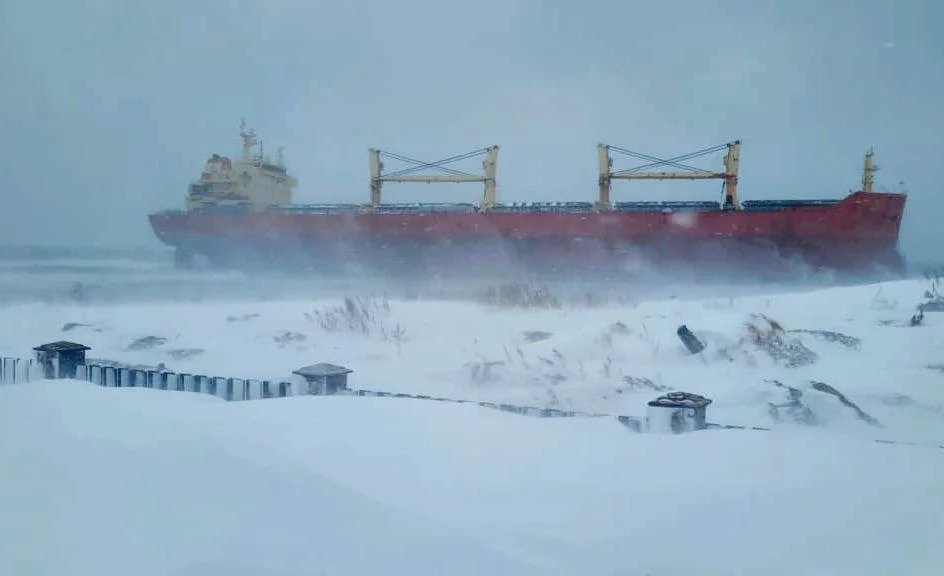
Photo: Investigative Committee
Following a massive Black Sea oil spill in December that has been dubbed Russia’s worst 21st century environmental disaster, two further accidents in Russian waters over the weekend have stoked concerns about Russia’s apparently negligent attitude towards protecting the marine environment.
In the port of Ust-Luga in the Leningrad region of northwestern Russia, a “technical incident” was reported to have taken place on the Russian oil tanker Koala on Sunday morning by Leningrad Governor Alexander Drozdenko.
According to Drozdenko, an accident occurred as the tanker’s engine was being started, causing damage to the engine room. He stressed that the tanker remained moored in port and that there was no threat of an oil spill.
Telegram channel Baza reported that three explosions were heard in the engine room as the ship was due to leave the port and that inspectors had been dispatched to ensure all safety protocols had been observed, adding that the Koala was carrying some 130,000 tonnes of oil.
The Koala, which was built in South Korea in 2003, is part of Russia’s so-called shadow fleet, which is made up of ships sailing under non-Russian flags, which are nevertheless used to export Russian oil to third countries in breach of international sanctions, independent media outlet Agentstvo reported.
As well as changing its name five times and its owner three times, in the past year the Koala has sailed under four different flags, according to Agentstvo, which also reported that the tanker had previously experienced technical difficulties, and that the crew had turned off the ship’s automatic identification system on an earlier journey through the Baltic Sea, a tactic employed by ships in the shadow fleet to avoid having their journeys monitored.
On Saturday, a Chinese cargo ship transporting 1,000 tonnes of coal, 54 tonnes of diesel and 706 tonnes of oil, ran aground near the port of Nevelsk on the island of Sakhalin in Russia’s Far East, according to the local Investigative Committee. Sakhalin Governor Valery Limarenko said that the An Yan 2 had not lost any of its cargo in the accident, but that investigators would audit the vessel to check that safety regulations had been observed.
On 15 December, the tankers Volgoneft 212 and Volgoneft 239, which were carrying 4,300 and 4,000 tonnes of oil respectively, both sustained serious damage after being run aground in high winds in the Kerch Strait, which runs between Russian-occupied Crimea and Russia proper, on 15 December. The Volgoneft 212 sank, leading to a massive oil spill and clean-up operation, as well as growing international disquiet at Russia’s continued use of old and poorly maintained ships.
